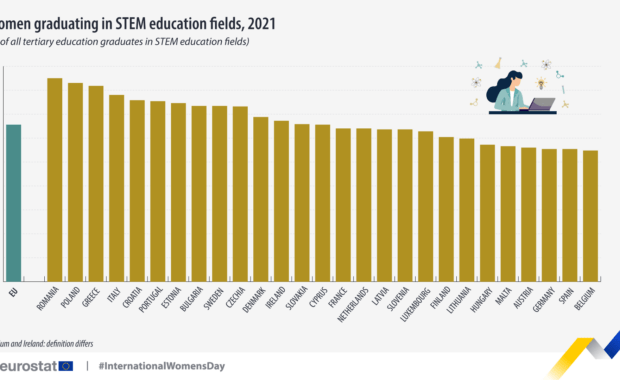The Commission has launched a 23 million eurocall for proposals to help EU Member States develop new ways to combat long-term unemployment and facilitate people’s re-entry into the labour market. This was announced in the recent action plan to tackle labour and skills shortages in the EU. Through this call for proposals, funded under the […]
Read MoreEuropean Commission launches call for proposals for EU Agri-Food Chain Observatory
The European Commission has launched a call for applications to set up the EU Agri-Food Chain Observatory (“AFCO”). The creation of this Observatory, which will examine production costs, margins and commercial practices, was announced in mid-March as one of the measures to strengthen the position of farmers in the food supply chain and to reinforce […]
Read MoreThe European Commission acts to address the shortage of labor and qualified personnel
The Commission has presented an action plan to tackle labour and skills shortages and proposes to work together with Member States and social partners to address these issues over the coming months and years. The action plan is part of the EU’s strategy to boost its competitiveness and enhance its economic and social resilience. […]
Read MoreEuropean Commission takes action to improve the quality of traineeships in the EU
Quality traineeships can help young people gain practical work experience, learn new skills and eventually find a good quality job. For employers, they are an opportunity to attract, train and retain talent. A quality traineeship requires fair and transparent working conditions and an adequate learning content. The EU’s 2014 Quality Framework for Traineeships set out […]
Read MoreCouncil gives final approval to new EU rules on short-term accommodation rentals
The Council has adopted a regulation on data collection and sharing for short-term accommodation rental services. This legislative act will enhance transparency in the field of short-term accommodation rentals and will help public authorities regulate this increasingly important part of the tourism sector. This is the last step in the decision-making procedure. Transparency and data […]
Read MorePlatform workers: Council confirms agreement on new rules to improve their working conditions
EU employment and social affairs ministers confirmed the provisional agreement reached on 8 February 2024 between the Council’s presidency and the European Parliament’s negotiators on the platform work directive. This EU legal act aims to improve working conditions and regulate the use of algorithms by digital labour platforms. The directive will make the use of […]
Read MoreSpain, with one third of female STEM graduates, is below the European average
In recent years, increasing attention has been paid to the representation of women in STEM education fields: natural sciences, mathematics and statistics, information and communication technologies, engineering, manufacturing and construction. Women are largely underrepresented in these fields. In 2021, in the EU, women tertiary education graduates (International Standard Classification of Education – ISCED levels 5-8), in STEM […]
Read MoreNew rules for a responsible and transparent short-term rental sector
The rules aim to reveal the actual impact of short-term rental services and enable local authorities in response to develop appropriate policies. On Thursday, Parliament adopted harmonised requirements on how data related to short-term rental services (STRs) should be collected and shared, with 493 votes in favor, 14 against and 33 abstentions. This regulation aims […]
Read More41% of people employed as scientists and engineers in the European Union are women
In 2022, there were almost 7.3 million female scientists and engineers in the EU, 310 500 more than in 2021, accounting for 41% of total employment in science and engineering. Women working as scientists and engineers were primarily employed in the service sector, comprising 46% of scientists and engineers in this sector, whereas in manufacturing, only 22% of those […]
Read More








